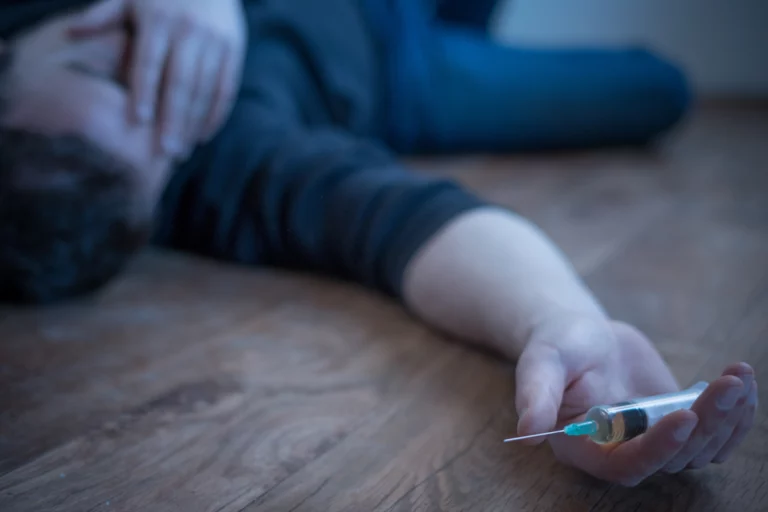How Unresolved Trauma Could Be Ruining Your Life
There are both visible and concealed repercussions of unresolved trauma. Despite the fact that trauma may not be evident, it may still affect our lives. The way our bodies react chemically to stress, for example, may be affected by trauma from previous years.
It’s detrimental to our well-being if we don’t appropriately treat traumatic events. Although trauma is a natural response to abnormal situations, it must be handled appropriately. If left untreated, trauma can result in broken relationships, addictions, diseases, and even death. Many substance abusers, after undergoing counseling, realize that they used alcohol and drugs to self-medicate for the pain they experienced as a result of untreated trauma.
To treat unresolved trauma, it is first important to recognize the signs. It is also crucial to differentiate between trauma and unresolved trauma. By being informed on these matters, you are prepared to seek the treatment for yourself or your loved one that is most applicable to your personal situation.
Trauma vs. Unresolved Trauma
Although they are extremely similar, trauma and unresolved trauma do have key differences, especially in the way they affect our lives. Trauma is defined by the American Psychological Association as an emotional response to a terrible event such as an accident, rape, or natural disaster. Immediately after the incident, shock and denial are common. Longer-term repercussions include unpredictable emotions, flashbacks, strained relationships, and even physical symptoms such as headaches or nausea. While these feelings are common, trauma impedes one’s ability to move on with life.
Unresolved trauma occurs when these emotions are repressed rather than addressed. Many people either ignore past traumas or attempt to address them without ever truly resolving them. Having that with you manifests in many ways such as addiction, self-harm, Post-Traumatic Stress Disorder (PTSD), and disassociation.

20 Signs it’s Unresolved Trauma, Not Stress
There are certain indicators that a person has suffered from unresolved trauma, regardless if it has been repressed. Here are some common indicators:
- Experiencing panic attacks or heightened anxiety from minor inconveniences
- Intense feelings of shame, worthlessness, and unimportance
- Experiencing chronic depression
- Avoiding specific places, people, things, or emotions related to the event that caused trauma
- Intrusive thoughts
- Aversion to developing new relationships
- Frequent nightmares, flashbacks, and physical reactions regarding the event
- Development of eating disorders
- Development of substance addictions
- Sleeping disorders such as insomnia or sleep paralysis
- Feeling detached, lonely, or isolated
- Experiencing disassociation or “out of body”
- Feeling constantly on edge and hypervigilant
- Black and white thinking (people are either bad or good)
- Suicidal ideation or suicide attempts
- Acts of violence or fits of rage
- Self-harm such as cutting or body mutilation
- Intolerance for conflict
- Irrational fear of specific places, people, or things
Why is Unresolved Trauma so Hard to Diagnose?
It may be difficult to diagnose unresolved trauma for several reasons. Patients may not recognize the connection between their symptoms and an experienced trauma; they may be unwilling to divulge the event, or the presentation may be masked by substance abuse or other comorbidities. Because of this, establishing a connection between a patient’s symptoms and an unresolved trauma may be especially challenging.
Coping with Unresolved Trauma
If you are experiencing many of the symptoms listed above, you may be suffering from unresolved trauma. Fortunately, there are effective methods in dealing with and treating its detrimental effects. The following actions have been identified as helpful by psychologists and other researchers:
- Rely on your loved ones – You may ask loved ones for support if you feel ready to discuss your traumatic experience and your feelings with them. If you’re not ready to discuss your experience, ask loved ones for help with daily tasks or other commitments.
- Confront your emotions – It’s natural to want to avoid thinking about a traumatic event. However, sleeping all the time, avoiding loved ones, and using substances to escape reminders are not healthy methods of coping. While avoidance is normal, excessively doing so can prolong your stress and prevent you from recovering. Try to return to a normal routine slowly. Support from family or mental health professionals can be of great assistance as you recover.
- Take care of yourself – Eat well, exercise regularly, and get sufficient sleep to maintain optimal health. In addition to these habits, seek out other healthful ways to cope, such as art, music, meditation, relaxation, and time in nature.
- Have patience – It is common to experience a strong response to a traumatic event. Take things one day at a time as you recover; as the days pass, your symptoms should gradually improve.

Counseling to Resolve Past Trauma
Seeking assistance is vital if you have experienced something that had a significant negative impact on your life. Processing the incident and the pain it caused are the first steps to recovery. A mental health counselor can assist you as you move through the healing process. You’ll learn how to spot triggers—things that remind you of a previous painful incident and how to manage your response to them.
Finding the right counselor or therapist and trauma-focused treatment for your needs is important. Traumatic events and mental health treatment can be difficult if they affect things such as mood, sleep, or substance abuse. Trauma-informed therapists use trauma-focused therapy as one method of mental health treatment. Trauma-informed mental health treatment is one form of trauma therapy.
Traumatic events are situations in which the individual perceives a threat to sanity, the body, and life. This type of mental health therapy is used by trauma-informed therapists to assist individuals with traumatic conditions in dealing with their condition. What is the difference between trauma and traumatic events? There are a number of studies that have been done to determine the danger associated with experiencing trauma in addition to studying traumatic events.
Trauma Therapy
Mental health professionals use trauma therapy to help clients deal with unresolved trauma. It combines a wide range of techniques and treatments. Since the traumatic event, you probably no longer see the world in the same way. A trauma therapist will assist you in recognizing that your life has changed.
Your treatment plan will be unique to you as a result of the fact that the therapy is planned to help you develop alternative, healthy means of dealing with your strong emotions. Each patient will be assessed in order to figure out what would be of most benefit to them.
The goals of this type of therapy may include:
- Confronting the trauma
- Reducing or completely eliminating symptoms of trauma
- Managing triggers
- Focusing on the present, not the past
- Improve daily functioning
- Overcome addictions
- Learn relapse prevention skills
Eye Movement Desensitization and Reprocessing (EMDR)
EMDR was developed by psychologist Dr. Francine Shapiro in 1987 as trauma therapy. It’s a unique type of therapy that doesn’t require much talking – rather, it helps you deal with difficult memories using eye movements. You’ll concentrate on your therapist’s hand as it moves back and forth (or, at times, tapping rhythmically) while thinking about a traumatic event in your EMDR session. As a result, your brain will ‘reprocess’ the memory by stimulating both sides of the brain (known as bilateral stimulation). During this procedure, you’ll be able to release the thoughts, resulting in fewer nightmares, flashbacks, and triggers.
Cognitive Processing Therapy (CPT)
Cognitive processing therapy (CPT) was designed by Patricia Resick, Ph.D. as a PTSD and unresolved trauma treatment. CPT is used to assist people who are trapped by their thoughts about the trauma. Your therapist will assist you in challenging and altering destructive ideas about the trauma that keeps you trapped. You’ll be assisted in altering and thinking differently about the circumstance, thereby reducing its harm. According to the American Psychological Association, CPT is one of the most efficient PTSD and unresolved trauma therapies available, and its benefits last over time.
Prolonged Exposure Therapy (PE)
PE therapy is a method of treating PTSD and unresolved trauma that includes confronting your fear in order to reduce anxiety. Avoidance is a common symptom of unresolved trauma. During PE therapy, you will be taught to overcome avoidance, which develops as a result of your trauma. You will learn to control your breathing, discuss your trauma, and gently confront your fears in real life while undergoing therapy. For example, someone who survived a sexual assault might return to the scene in order to realize that the trauma has passed and that they are now safe.

Trauma-Focused Cognitive Behavioral Therapy (TF-CBT)
TF-CBT is an evidence-based treatment program that assists individuals in dealing with the consequences of trauma. While CBT provides efficient techniques for healing and treating trauma-related problems, TF-CBT uses an emotionally intelligent approach and offers an expanded range of methods. Individuals who have been traumatized are taught how to manage their painful or difficult emotions in a healthier manner using the TF-CBT approach.
You Can Trust Durable Recovery
It’s important to seek professional help and start a trauma treatment process if you or a loved one is dealing with unresolved trauma. Because traumatic stress symptoms may result in secondary issues, you’ll have fewer problems if you locate a specialist who is experienced in treating trauma and stress disorders as soon as possible.
The professionals at Durable Recovery have decades of combined experience in treating various mental and addictive disorders. With our help, you can confront your past trauma and begin to heal.
To learn more about trauma therapy or any of the other services we offer, contact us today. It is time to take back your life—and we can help.








